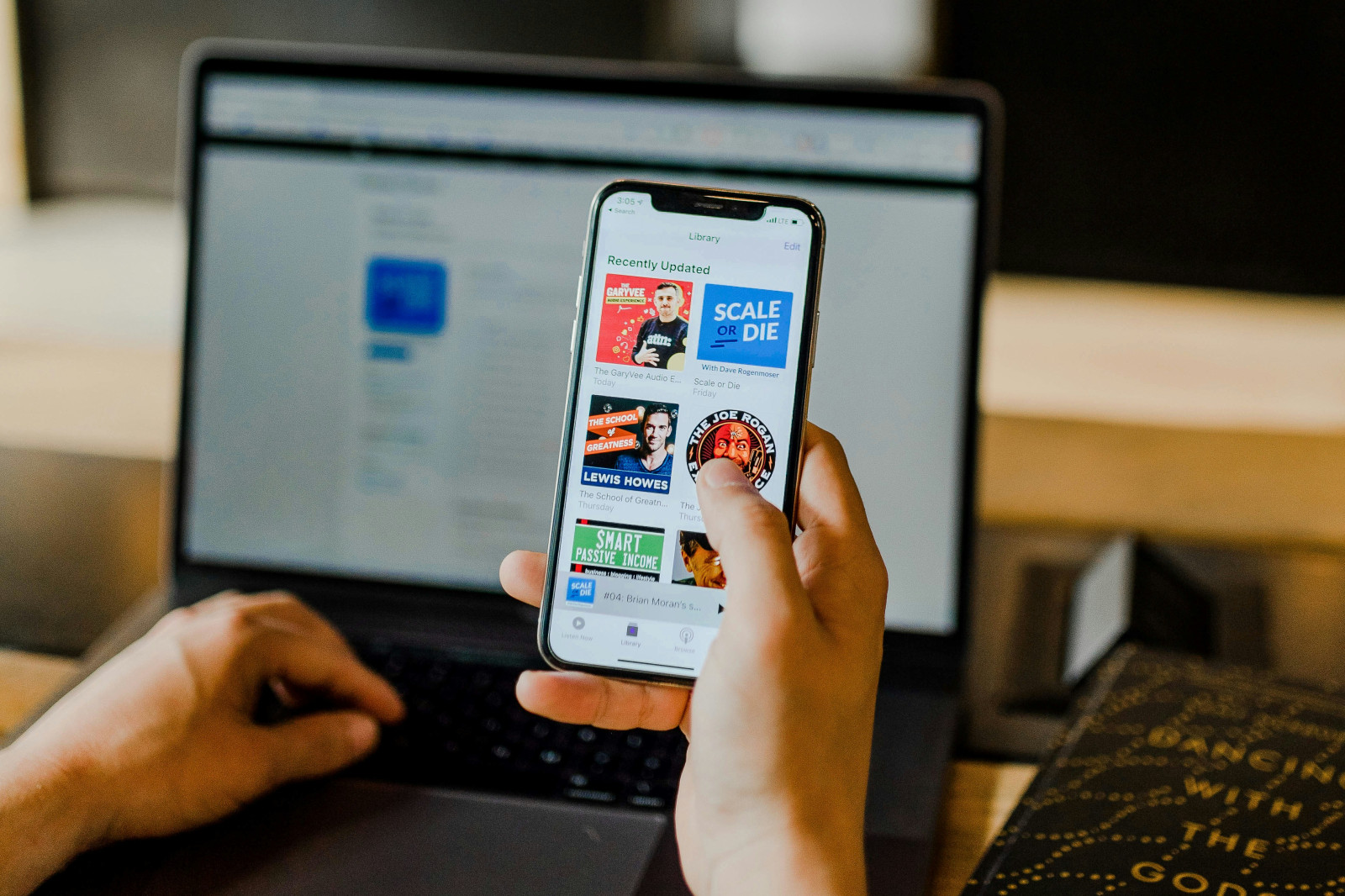Will 2024 be the year of podcast unbundling?

Photo: Austin Distel

Before Spotify, YouTube, and Netflix disrupted music and video, bundled consumption helped drive profitability. From albums to TV networks, consumer preferences were largely dictated by the bundle, allowing record labels and television providers to leverage the fact that consumers would pay a lot for access to a little. In today’s unbundled media landscape, consumers not only pay a little for access to a lot, but they also have the autonomy – however illusory it is – to cherry-pick only the music and videos they want. Podcasts, despite having originated in the unbundling era, remain decidedly bundled, especially when it comes to their presentation on digital platforms. Given the amount of uncertainty swirling around podcasting in 2023, the new year may be a good time for the industry to begin experimenting with its format and reconsidering the way platforms present podcasts to consumers could unlock new potential.
Unbundling came for albums – should podcasts be next?
For many consumers in the CD era, only a few songs on any album may have been of interest, but the only way to access them was to buy the other eight songs as well. In truth, very few albums were actually “all killer and no filler” and far too many could have easily remained singles-only releases. It is hard to say whether the delivery of music through digital audio revealed consumers’ true preferences or fundamentally altered them (likely a mix of both), but the unbundling of the album certainly changed the way that the music industry marketed music. All of a sudden, a single track, untethered to a larger creative vision, could take on a life of its own.
Podcasts are certainly different from albums, but the personality and / or serialisation that tends to tether listeners to a particular podcast title is not that far off from the narrative arc of a good album. The question is whether this sort of bundling still serves a format that exists on platforms which tend to privilege algorithmic recommendations over thoughtful human curation. One obvious example here is the most popular podcast in the United States: The Joe Rogan Experience (JRE). Like the six degrees of Kevin Bacon, if you watch YouTube for long enough (or leave it on while you sleep), you will inevitably end up on an episode of Rogan’s podcast. There is even a whole report from SoundsProfitable with data to back this up. While Rogan’s personality and the power of reactionary internet culture certainly play a role here, JRE episodes also stand on their own — not in terms of intellectual rigour, but in their ability to engage audiences regardless of chronology. Rogan has played the unbundling game well, leveraging his own dilettantism to appeal to podcast consumers’ broad range of interests and created content that lends itself to clip-driven virality.
Featured Report
Defining entertainment superfans Characteristics, categories, and commercial impact
Superfans represent a highly valuable yet consistently underleveraged audience segment for the entertainment industry. What drives this disconnect is the fact that – despite frequent anecdotal use of the term – a standardised, empirical definition remains absent, preventing companies from systematically identifying, nurturing, and monetising th...
Find out more…Podcast playlists should capitalise on broad interests and context-based consumption
Thanks in part to playlists, music consumer interests have also broadened and genre agnosticism has become a defining characteristic of younger listeners. According to recent MIDiA consumer surveys, podcast listeners also tend to have comprehensive tastes when it comes to their top four or five favourite categories. For both music and podcasts, the choice to listen arguably becomes more about what function the listening is playing in a consumer’s day-to-day rather than styles or topics themselves. In other words, context — what consumers are doing (or feeling) while listening — is an increasingly important driver of digital audio consumption. These context-based listening patterns offer up a ripe opportunity for episode-driven podcast playlists. Instead of a YouTube page organised by category, one might imagine video playlists organised by activity. Instead of “Songs to Sing in the Car”, for instance, think “Podcasts for Road Trips” or “Your Morning Routine”. As it stands, discoverability is one of the biggest issues plaguing podcasts right now. Not only would context-based podcast playlists offer listeners a chance to discover new podcasts (or at least episodes) that they might not otherwise have heard, but it would allow listeners to make new episodes from lesser known podcasts part of their daily or weekly routines.
No one likes a middleman, but this one could help podcasts grow
There are certainly knock-on effects to unbundling, not least of which is the potential for content to rule over the creator. It is a trend we have seen in music, with labels chasing viral hits instead of developing artists. That also puts a lot of pressure on creators to make episodes that stand on their own. While we should all be figuring out how to mitigate the risks of unbundling, thinking proactively about how to bring listeners from top-of-funnel to bottom-of-funnel is a sign of progress for the format. Ideally, bringing a discovery-minded approach to the format would benefit lesser known creators while enhancing the listener experience.
Beyond the improved listener experience and the boost to discovery, unbundling podcasts and developing a robust podcast playlist ecosystem would also introduce a whole new role in podcasting: the podcast curator. Algorithmic recommendations would surely still be a part of the podcast discovery process, but playlists present the possibility of human curation. Amid heightened competition in the podcast market, Spotify might seize on this opportunity as another way to establish their foothold in the podcast world — to become not just a top consumption platform, but an arbiter of taste. Human curation creates both demand and loyalty, which in turn creates value — something the podcast industry is desperately trying to sort out amidst a tumultuous year of layoffs and cancelations. All of the pieces are there to make it happen in 2024, it is just a matter of turning imagination into action.

The discussion around this post has not yet got started, be the first to add an opinion.